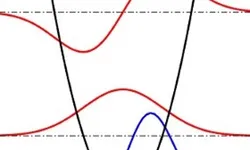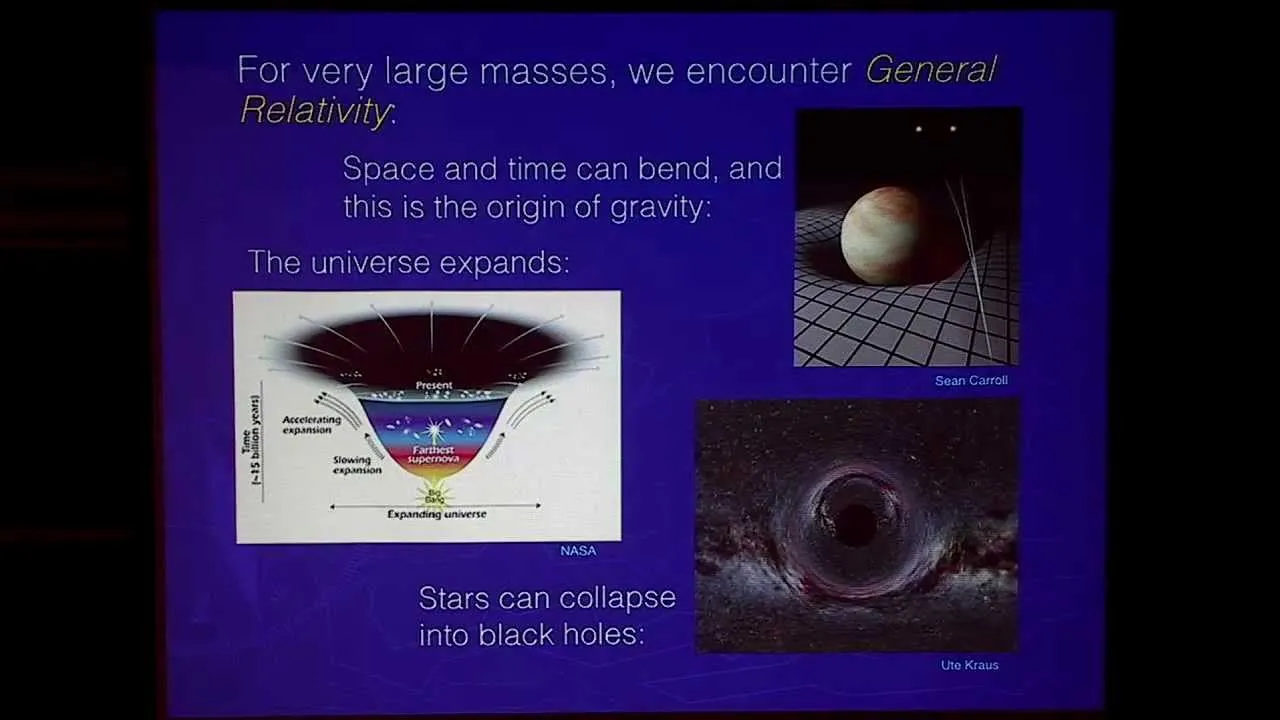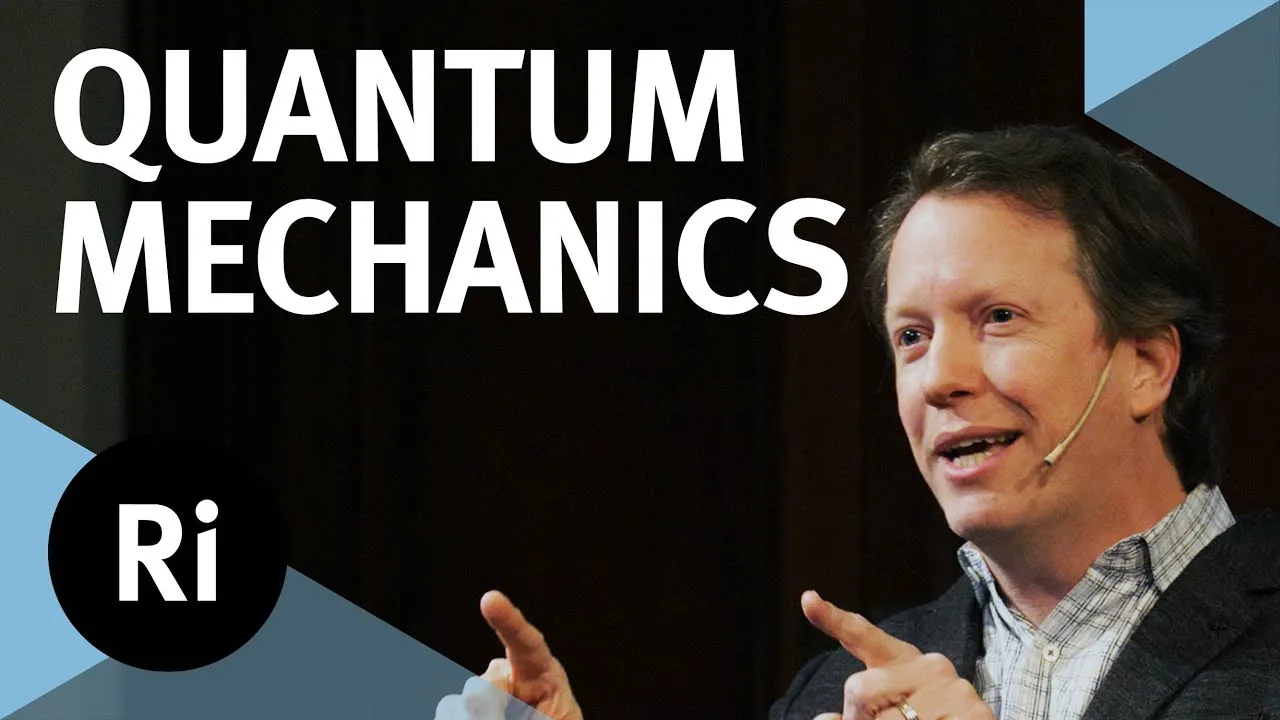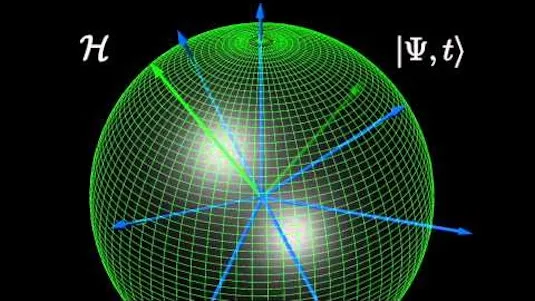
Foundations of Quantum Mechanics 
This course, Foundations of Quantum Mechanics, is part of the Master of Science in Electrical Engineering degree at CU Boulder. It can be taken for academic credit as ECEA 5610. ▼
ADVERTISEMENT
Course Feature
![]() Cost:
Cost:
Free
![]() Provider:
Provider:
Coursera
![]() Certificate:
Certificate:
Paid Certification
![]() Language:
Language:
English
![]() Start Date:
Start Date:
29th May, 2023
Course Overview
❗The content presented here is sourced directly from Coursera platform. For comprehensive course details, including enrollment information, simply click on the 'Go to class' link on our website.
Updated in [April 29th, 2023]
Foundations of Quantum Mechanics is a course offered by the University of Colorado Boulder as part of its Master of Science in Electrical Engineering degree. This course covers the fundamental concepts and topics of quantum mechanics, including basic concepts, 1D potential problems, time evolution of quantum states, and essential linear algebra. Learners will gain an understanding of wave-particle duality, operators and wavefunctions, and evolution of quantum states. They will also gain mastery of the mathematical apparatus needed for quantum mechanics and the foundational knowledge required to learn more advanced quantum mechanics and applications. Upon completion of this course, learners will be able to demonstrate full grasp of basic concepts in quantum mechanics, achieve mastery of the mathematical apparatus needed for quantum mechanics, and attain foundational knowledge required to learn more advanced quantum mechanics and applications.
[Applications]
Upon completion of this course, learners can apply their knowledge to further their studies in quantum mechanics and related fields. They can also use their understanding of quantum mechanics to develop new technologies and applications in areas such as quantum computing, quantum cryptography, and quantum sensing. Additionally, they can use their knowledge to explore the implications of quantum mechanics on the physical world.
[Career Paths]
1. Quantum Computing Engineer: Quantum Computing Engineers are responsible for developing and maintaining quantum computing systems. They must have a strong understanding of quantum mechanics and be able to apply it to the development of quantum computing systems. This job is expected to grow rapidly as quantum computing technology advances.
2. Quantum Cryptographer: Quantum Cryptographers are responsible for developing and implementing cryptographic protocols that are secure against quantum computing attacks. They must have a strong understanding of quantum mechanics and cryptography, and be able to apply them to the development of secure cryptographic protocols. This job is expected to grow rapidly as quantum computing technology advances.
3. Quantum Optics Engineer: Quantum Optics Engineers are responsible for developing and maintaining quantum optics systems. They must have a strong understanding of quantum mechanics and be able to apply it to the development of quantum optics systems. This job is expected to grow rapidly as quantum optics technology advances.
4. Quantum Materials Scientist: Quantum Materials Scientists are responsible for researching and developing new materials for use in quantum computing and quantum optics systems. They must have a strong understanding of quantum mechanics and be able to apply it to the development of new materials. This job is expected to grow rapidly as quantum computing and quantum optics technology advances.
[Education Paths]
1. Master of Science in Electrical Engineering: This degree program provides students with a comprehensive understanding of electrical engineering principles and their applications. It covers topics such as circuit analysis, digital signal processing, control systems, and communication systems. Students will also gain knowledge in areas such as robotics, artificial intelligence, and quantum computing. This degree is ideal for those looking to pursue a career in the electrical engineering field, as it provides the necessary skills and knowledge to succeed.
2. Master of Science in Physics: This degree program provides students with a comprehensive understanding of physics principles and their applications. It covers topics such as classical mechanics, quantum mechanics, thermodynamics, and electromagnetism. Students will also gain knowledge in areas such as astrophysics, cosmology, and particle physics. This degree is ideal for those looking to pursue a career in the physics field, as it provides the necessary skills and knowledge to succeed.
3. Master of Science in Computer Science: This degree program provides students with a comprehensive understanding of computer science principles and their applications. It covers topics such as algorithms, data structures, computer architecture, and software engineering. Students will also gain knowledge in areas such as artificial intelligence, machine learning, and quantum computing. This degree is ideal for those looking to pursue a career in the computer science field, as it provides the necessary skills and knowledge to succeed.
4. Master of Science in Applied Mathematics: This degree program provides students with a comprehensive understanding of applied mathematics principles and their applications. It covers topics such as linear algebra, calculus, probability, and statistics. Students will also gain knowledge in areas such as numerical analysis, optimization, and quantum computing. This degree is ideal for those looking to pursue a career in the applied mathematics field, as it provides the necessary skills and knowledge to succeed.
The development trends for these degree paths are focused on the application of quantum computing and artificial intelligence. As the technology advances, the need for professionals with expertise in these areas is increasing. Therefore, these degree paths are becoming increasingly important for those looking to pursue a career in the fields of electrical engineering, physics, computer science, and applied mathematics.
Pros & Cons

Good content

Precise concepts with full mathematical details

High importance for an engineer

Staff not active

Grader won't accept correct answer

No official TA

Limited material covered

No homework session
Course Provider

Provider Coursera's Stats at AZClass
Discussion and Reviews
0.0 (Based on 0 reviews)
Explore Similar Online Courses

Visual Identity Design: Create Contemporary Branding

Music Theory Fundamentals - Beginner

Python for Informatics: Exploring Information

Social Network Analysis

Introduction to Systematic Review and Meta-Analysis

The Analytics Edge

DCO042 - Python For Informatics

Causal Diagrams: Draw Your Assumptions Before Your Conclusions

Whole genome sequencing of bacterial genomes - tools and applications

Gravity and Quantum Mechanics - The Quest for Unification

A Brief History of Quantum Mechanics - with Sean Carroll

Mastering Quantum Mechanics Part 3: Entanglement and Angular Momentum
 Related Categories
Related Categories
Quiz
 Submitted Sucessfully
Submitted Sucessfully
1. What is the main goal of this course?
2. Which of the following topics are covered in this course?
3. This course can be taken for academic credit as _________?
4. The course covers _________?
Correct Answer: wave-particle duality


Start your review of Foundations of Quantum Mechanics